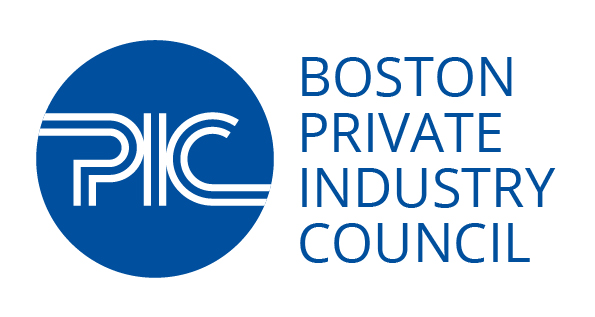History
For more than four decades....
The Boston Private Industry Council has been making connections between neighborhoods and industry since 1979.
Mayor Kevin White and State Street Bank Chairman Bill Edgerly establish the Boston Private Industry Council to oversee federal job training resources and to engage private sector employers; this business-majority model was legislated nationally in 1982 and again in 1998 and 2014.
Business and higher education leaders join the BPS and the Mayor in signing the first Boston Compact school improvement agreement; PIC launches the private sector component of the Mayor’s Summer Jobs Campaign as part of the business commitment to the school system.
The PIC and area hospitals create ProTech, one of the first school-to-career programs in the country and a model for the 1994 federal School-to-Work Opportunities Act; Governor Bill Weld and Mayor Ray Flynn launch a statewide initiative to fund subsidized youth employment, now called YouthWorks.
As part of a Clinton Administration pilot program, the PIC becomes one of the first workforce boards in the country to charter the operation of “one-stop career centers,” which became a model for the 1998 Workforce Investment Act.
The PIC’s Too Big to Be Seen report launches dropout reduction work in Boston; the PIC hires the first dropout re-engagement specialists and, in 2009, collaborates with the BPS to open the Re-Engagement Center.
The Center for Labor Market Studies at Northeastern University and the PIC publish Getting to the Finish Line, one of the nation’s first college completion studies, leading Mayor Tom Menino to launch the Success Boston initiative and The Boston Foundation to fund postsecondary transition coaches.
The PIC and area healthcare leaders convene the Healthcare Careers Consortium, a model for industry sector coalitions as later called for in the 2014 Workforce Innovation and Opportunity Act; The PIC and SkillWorks convene TechHire Boston in 2017.
The PIC, along with the Boston Opportunity Agenda, creates the Opportunity Youth Collaborative in response to a call from the Obama Administration and the Aspen Institute; the PIC expands its re-engagement efforts to include 20-24 year-olds who are out of school and out of work, including disconnected high school graduates.
When the COVID-19 pandemic hits, summer internship employers work quickly to pivot to virtual internships. While many anchor employers are able to make the switch, others opted out as they struggled to reorient their own enterprises for remote operation. Nonetheless, the PIC and its employer partners are able to move over $2 million in student wages into the community in the midst of the pandemic and the related economic crisis.
On November 21, 2021, Mayor Michelle Wu takes office. In March of 2022, she meets with PIC employers, fully embracing her leadership of the Mayor’s Summer Jobs Campaign. In June, Mayor Wu appoints Mary Skipper to lead the Boston Public Schools and together they champion career exploration and career-connected learning. On the workforce development front, the Wu administration secures a $22 million grant from the US Department of Labor in August.
